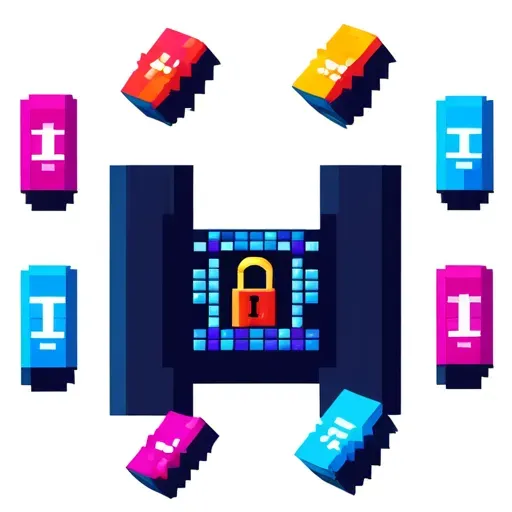
Introduction of Non-Interactive Zero-Knowledge Proofs with Certified Deletion
/ 3 min read
Quick take - The introduction of Non-Interactive Zero-Knowledge Proofs with Certified Deletion (NIZK-CD) represents a significant advancement in quantum cryptography, enabling recipients to securely delete proofs while obtaining a deletion certificate that enhances privacy and security in various digital applications.
Fast Facts
-
Introduction of NIZK-CD: Non-Interactive Zero-Knowledge Proofs with Certified Deletion (NIZK-CD) enhance quantum cryptography by allowing recipients to delete proofs while obtaining a classical deletion certificate, improving privacy and security.
-
Formal Definition and Limitations: NIZK-CD is formally defined with constructions based on classical NIZK and one-way functions, but has limitations such as private verifiability and the requirement for both prover and verifier to be quantum algorithms.
-
Extensions for Public Verifiability: Two extensions address limitations: one achieves publicly verifiable certificates using the quantum hardness of the learning with errors (LWE) problem, and the other allows classical communication between classical provers and quantum verifiers.
-
Applications and Security Features: NIZK-CD supports revocable signatures and anonymous credentials, crucial for digital voting and identity verification, while ensuring security against replay and malleability attacks.
-
Quantum Resistance and Trust: The framework leverages quantum-resistant assumptions, enhancing security against quantum computing threats, and facilitates ephemeral proofs that comply with regulatory requirements, fostering trust in digital transactions.
The Introduction of Non-Interactive Zero-Knowledge Proofs with Certified Deletion (NIZK-CD)
The introduction of Non-Interactive Zero-Knowledge Proofs with Certified Deletion (NIZK-CD) marks a significant advancement in the field of quantum cryptography. This innovative concept allows recipients of quantum NIZK proofs for non-deterministic polynomial (NP) statements to delete the proof while obtaining a classical deletion certificate. Once the deletion certificate is successfully validated, the recipient effectively loses the ability to discover accepting inputs for NIZK verification, enhancing privacy and security.
Technical Overview and Limitations
NIZK-CD is formally defined, and several candidate constructions are proposed based on standard cryptographic assumptions. A primary construction relies on classical NIZK for NP statements and one-way functions. However, it comes with two notable limitations: deletion certificates are privately verifiable, and both the prover and verifier must operate as quantum algorithms. To address these limitations, two extensions have been developed. The first extension achieves publicly verifiable certificates by assuming the quantum hardness of the learning with errors (LWE) problem. The second extension allows for classical communication between classical provers and quantum verifiers, broadening the framework’s applicability.
Applications and Security Features
Applications of NIZK-CD are extensive and include the development of revocable signatures of knowledge. These enable the creation of revocable signatures and revocable anonymous credentials. Such features facilitate the issuance of anonymous credentials that can be revoked without the need for traditional blocklisting methods. These features are particularly relevant in scenarios such as digital voting and identity verification.
The background of this advancement is rooted in the progress of quantum cryptography, which has provided the foundation for secure key agreements, quantum money, copy protection, and certified deletion. NIZK-CD’s unique capability allows proof recipients to lose verification abilities after deletion in quantum contexts, contrasting with classical frameworks where proofs remain verifiable indefinitely. The framework outlines a comprehensive process involving setup, proving, verifying, deleting, and certifying deletion, adhering to critical security requirements such as soundness, zero-knowledge, and deletion security.
In summary, the combination of quantum security, revocability, and privacy-preserving mechanisms positions NIZK-CD as a noteworthy advancement in cybersecurity. It promises enhanced security and trust in digital environments.
Original Source: Read the Full Article Here


